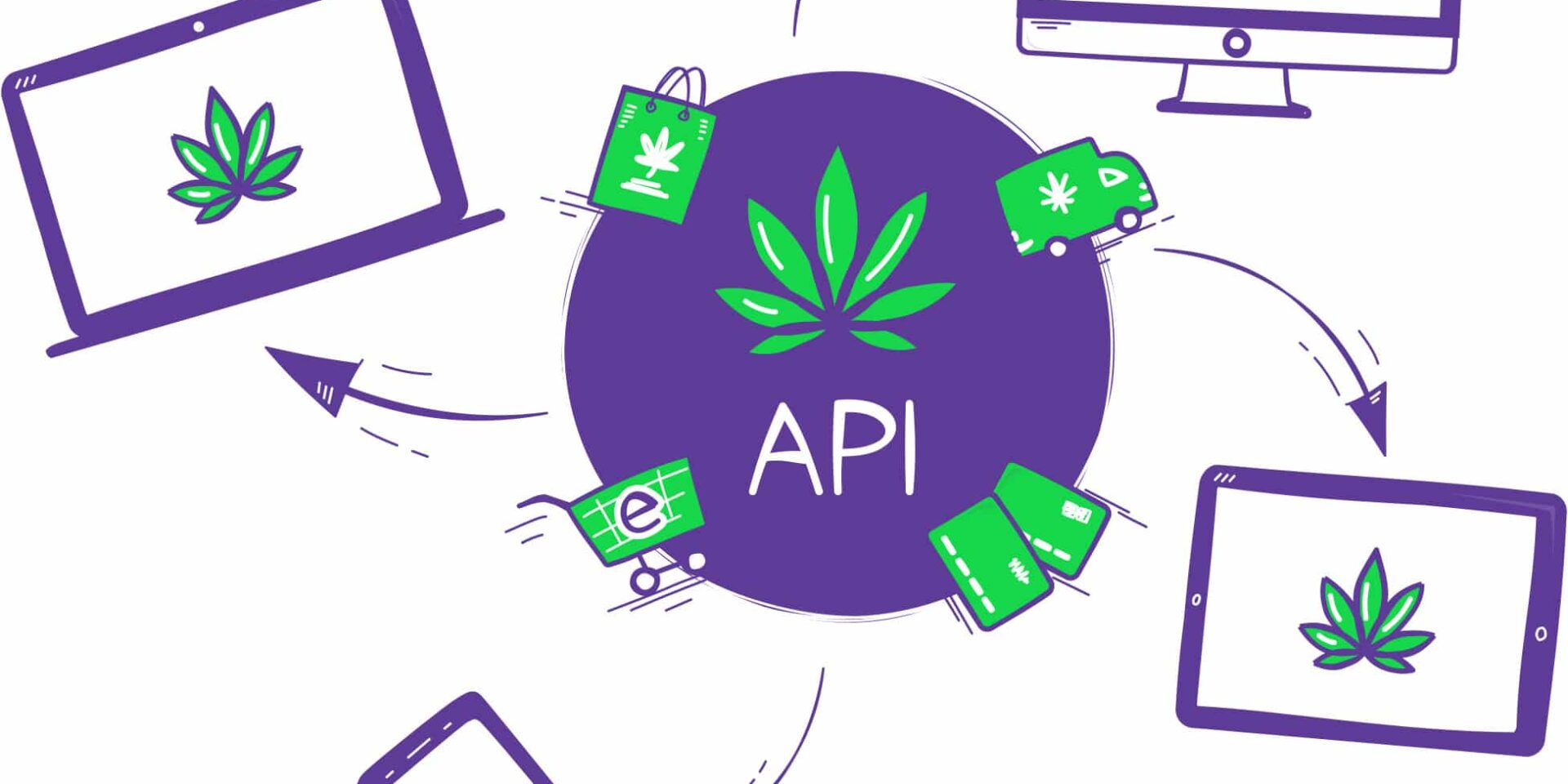Revolutionizing the Cannabis Industry: Unlocking Growth with Open vs. Closed API Cannabis Software
As the cannabis industry evolves, embracing a myriad of technologies, the integration of software applications becomes a critical factor in driving business success. A broad range of tools is required to cover every aspect of a cannabis business, from cultivation to point-of-sale and from compliance to customer relationship management.
These systems must interact flawlessly to ensure seamless operations, and this is where Application Programming Interface (API) software steps in. Particularly in this context, open API assumes a vital role by enabling smooth integration and communication between different tools, fostering a truly interconnected digital ecosystem.
The digital age has fundamentally changed how businesses operate, and the cannabis industry is no exception. An API is a gateway, a set of protocols and rules that allow different software applications to communicate and exchange data with each other. It simplifies complex processes and acts as a bridge between disparate systems.
In the burgeoning world of cannabis commerce, API software can streamline operations, ensuring a seamless flow of data, enhancing productivity, and ultimately driving growth.
What Is an Open API?
OpenAPI Specification (OAS), in essence, is a breakthrough in the API domain designed to facilitate the transfer of knowledge between API consumers and providers. As an open standard for developing and utilizing APIs, it sets a universal benchmark for creating, discovering, and deploying APIs.
An API described under the OAS can be encoded in either a JSON or a YAML document, providing a common language for APIs that is understood universally. A key feature of OAS is its capacity to decouple APIs from any specific programming language, thereby rendering them accessible to a broader spectrum of users. Further supplemented by an array of supporting tools, OAS can transmute simple documents into rich, intuitive, and enjoyable experiences.
API specification languages complement this by offering a standardized way to represent APIs in language-agnostic terms, reducing complexity and increasing comprehensibility.
As the cannabis industry grows in sophistication, APIs are no longer a luxury but a necessity. Open APIs, as governed by OAS, are the bedrock upon which the future of cannabis technology rests. They hold the promise of a future where seamless interoperability between software applications is the norm rather than the exception. Learn more about API integrations for the non-technical.
The Potential for Disruption with API Technology in Cannabis Industry
API technology in the cannabis industry offers an opportunity for businesses to disrupt the status quo. As a nascent industry, cannabis is free from entrenched systems that often hinder technological innovation. Open APIs, with their capacity to integrate, automate, and streamline, can be the key to leading this disruption.
The role of APIs in creating a more standardized, efficient, and sustainable ecosystem is undeniable. By enabling seamless data exchange and reducing reliance on manual processes, APIs redefine how cannabis businesses operate, offering the chance for increased competitive advantage.
Open Loop vs. Closed Loop API in Cannabis Software
The dichotomy of open and closed-loop APIs lies primarily in the realm of access and flexibility. Closed-loop APIs operate under the principle of restricted access, offering a secure environment that comes with the trade-off of limited versatility. They maintain a high level of control and security by confining development within the organization’s borders. While this ensures a stringent security posture, it may limit the creative freedom of developers and constrain the ability to integrate with diverse external systems.
On the contrary, open-loop APIs are champions of flexibility and innovation. They provide developers with a creative sandbox to build upon and experiment, leading to innovative solutions that can disrupt the status quo. By facilitating a broader integration ecosystem, open APIs empower cannabis businesses to adapt, grow, and scale efficiently. Furthermore, open APIs typically prove more cost-effective than their closed counterparts, making them an attractive proposition for cannabis businesses seeking growth in a competitive market.
API Integration Benefits in the Cannabis Industry
The impact of API integration in the cannabis industry transcends the mere enhancement of operational efficiencies. It has the potential to transform the industry at multiple levels, from bolstering employee productivity to improving the overall customer experience.
Offers High Performance
API integrations perform at high levels of efficiency, allowing near-instant data transfer between applications. This ensures employees and stakeholders can access the data they need and exactly when they need it. In addition, API integrations are robustly resilient to changes in applications’ user interfaces and are relatively straightforward to set up and manage, particularly when assisted by third-party connectors.
Enables Innovative Automation
API integrations can bring about innovative automation that spans the entire operational spectrum. Whether it’s syncing your ITSM tool (like ServiceNow) with a storage solution (like Amazon S3), a machine learning platform (like Amazon SageMaker), or a business communications platform (like Slack), API integrations can revolutionize your processes.
Fosters Greater Employee Productivity
By eliminating the need for employees to juggle multiple applications, API integrations can substantially enhance productivity. It reduces the time spent on administrative tasks, allowing employees to focus on core tasks and ultimately improving job satisfaction.
Reduces Human Errors
API integrations can help avoid the errors associated with manual data entry and transfer between applications. Automating data transfers, it reduces the likelihood of input errors and the risk of associated issues, thereby ensuring the integrity of data across platforms.
Improves the Employer’s Reputation
API integrations not only enhance productivity and reduce errors but also contribute to building a positive employer reputation. By reducing the burden of repetitive tasks on employees and fostering a more efficient work environment, businesses can attract and retain top talent in a competitive market.
Enhances the Customer Experience
By expediting and improving business processes, API integrations indirectly contribute to a superior customer experience. When businesses run smoothly, it positively impacts customer interactions and overall satisfaction.
The Future of API Technology in Cannabis Business Operations
API technology’s potential to revolutionize the cannabis industry is vast. As businesses recognize the value of efficient, automated, and interconnected systems, API adoption is bound to surge. The future of cannabis industry operations will be heavily influenced by API software, managing complexity as the industry grows.
Early adopters of this technology will have a competitive edge, streamlining operations, reducing costs, and enhancing customer experiences. With advancements in AI and machine learning, APIs’ role will expand further, potentially driving a more digital, interconnected future in the cannabis industry.
Why Open API 365 Cannabis is the best option for Your Business
Choosing the right API cannabis software can significantly affect the success of your business. 365 Cannabis stands unrivaled with its open API ecosystem that allows seamless integration with over 80 partners. It empowers you to select vendors best suited to your requirements and to stay ahead of the curve in a competitive market.Explore more about 365 Cannabis partners and integrations and how our cannabis compliance software can propel your business forward. Choose 365 Cannabis, the smart choice for your cannabis business, and join us in shaping the future of the cannabis industry.





